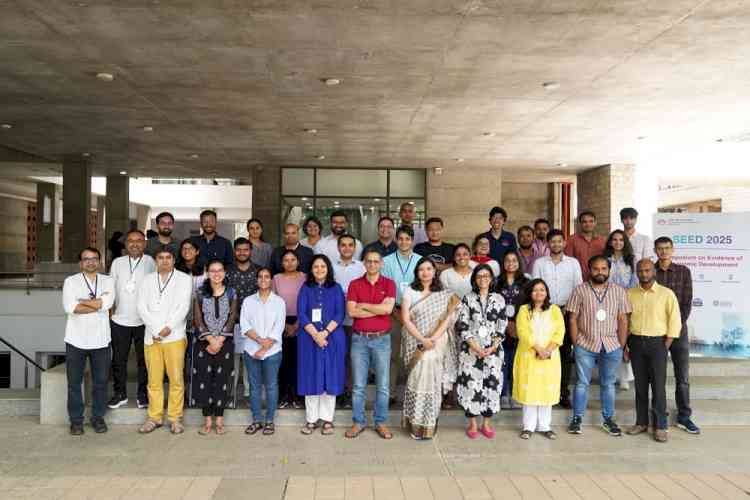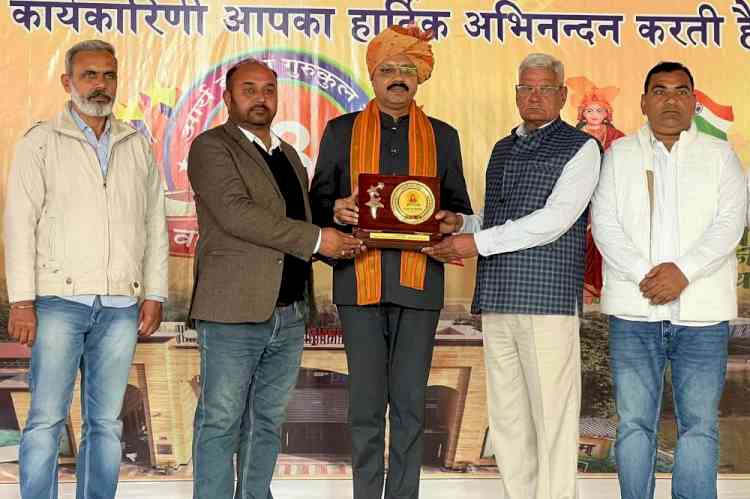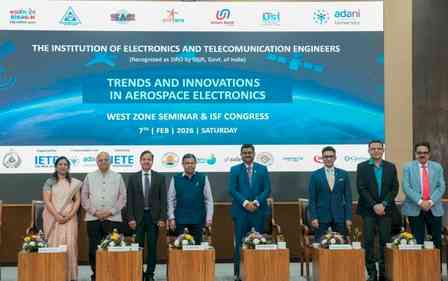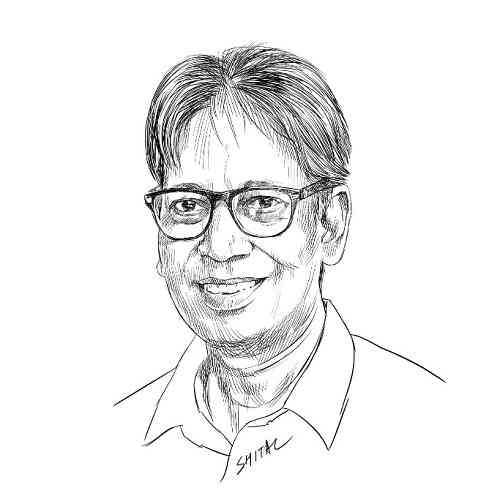IIM Bangalore hosts 2nd edition of Symposium on Evidence of Economic Development (SEED)
Empirical insights on gender gaps, conflict, credit shocks, industrialization, and social policy brought to the fore

Bengaluru, June 29, 2025: The Economics area at the Indian Institute of Management Bangalore (IIMB) hosted Day 1 of the Symposium on Evidence of Economic Development (SEED 2025), a premier academic event focused on the presentation of empirical research in economic and social development. SEED 2025 brought together leading researchers from institutions across the country to present evidence-based insights on critical issues in behavioural economics, public policy, development, and industrial dynamics.
The symposium was initiated by an inaugural address by Prof. U. Dinesh Kumar, Dean of Faculty at IIMB, emphasizing the need for stringent, evidence-based research to help guide inclusive and effective policy. SEED 2025 is chaired by Prof. Ritwik Banerjee, Chairperson, Economics Area, IIMB; Prof. Anindya Chakrabarti, IIM Ahmedabad; and Prof. Pavel Chakraborty, University of Lancaster.
Day 1 featured a rich blend of theory, field evidence, and policy evaluation by leading researchers. Among them:
Prof. Tarun Jain, IIM Ahmedabad, opened the symposium with compelling findings of how girls' interest in science as a discipline is disproportionately affected by quantitative presentation in scientific evaluation. His experiments, founded on behavioural data, proved that math-intensive presentation styles, whether innately challenging or not, can instill gendered presumptions deep-seated in students' minds, deterring female students from science careers and burgeoning. The ASSET test and an innovative AI-driven categorization method, the study reveals how beliefs about math intensity are to blame for gender disparities in STEM pursuits.
Prof. Yatish Arya, Ashoka University, presented robust preliminary findings on the political economy of green policy with ‘Green Spaces for Saffron Growth’, considering whether initiatives on green development such as reforestation are ideologically neutral or politically motivated. By applying spatial data and policy analysis, his work challenged how majoritarian politics increasingly shapes environmental stories, which unveils new aspects of environmental governance in India.
Prof. Moumita Roy, Ahmedabad University, laid down a theoretical framework for explaining conflict resolution in situations where individual decisions have spillover effects—good or bad—on others. Her work in ‘Achieving Peace in Conflicts with Spillovers’, emphasized the difficulties of obtaining cooperation in interdependent settings, such as neighborhood disputes or strategic rivalries, and offered new measures to explain and settle collective conflict.
Meanwhile, Prof. Jeevant Rampal of IIM Ahmedabad gave a very strong institutional analysis of the assignment of senior Indian bureaucrats to administrative cadres with his findings on ‘Bureaucrat Assignment Mechanisms: Theory and Evidence’. Through his research, combining economic theory with empirical evidence, he revealed possible inefficiencies and mismatches in cadre assignment and suggested clear, evidence-based reforms to enhance the working of the Indian administrative system. His findings opened up a broader dialogue on aligning governance structures with principles of transparency and performance.
Prof. Abhishek Shaw, Azim Premji University, discussed how household responses to cash transfers vary by land-holding status. Drawing from field data for his work on ‘Consumption and Borrowing: Land-holding Inequality and the Impacts of Cash Transfers’, he established that structurally conditional borrowing, saving, and consumption behaviors are indeed shaped post-transfer as a result of land inequality. The findings highlighted the relevance of finely calibrated welfare policy designs that are responsive to structural rural economic inequalities.
Through her research on ‘Banning the Bottle, Shifting the Balance: Causal Evidence from Bihar's Alcohol Ban’, Prof. Manini Ojha, O.P. Jindal School of Government and Public Policy, examined the unanticipated social effects of the state-level prohibition of alcohol in Bihar. She depicted the way Bihar's 2016 ban on alcohol led to significant improvements in women's decision-making, mobility, and autonomy. Her study used household-level data to quantify shifts in intra-household bargaining power, domestic violence occurrence, and social conduct following the ban. The talk offered critical insight into the way regulatory action, albeit altruistic, can produce subtle gendered effects at the household level.
Dr. Vidhya Soundararajan, Research Director at the Centre for Advanced Financial Research and Learning (CAFRAL), examined the macroeconomic consequences of India's Prompt Corrective Action (PCA) regime on firms' productivity. Presenting the analysis of Reserve Bank of India's Prompt Corrective Action (PCA) framework, the study, ‘Credit Supply Shocks, Firm Performance, and Aggregate Productivity Growth’, used loan-level data to establish that lending curbs resulted in significant reduction in firm credit, particularly among riskier or erstwhile dependent firms. Her research traced the effect of banking curbs on access to credit, firm production, and industry productivity. The findings clarify the economic trade-offs between financial regulation and economic dynamism, and their implications for India's growth trajectory.
In the final featured session of the day, Prof. Kunal Dasgupta, IIM Bangalore, presented empirical evidence linking internal and external trade costs to industrialization. Using panel data on India's organized manufacturing, he illustrated that lower trade frictions are strongly associated with greater industrial activity and regional diversification. His research on ‘Transport Costs and Industrialization’, lends support to policy intervention that reduces logistics and trade barriers to equitable industrialization.
With engaging discussions and heightened engagement by students, scholars, and instructors, SEED 2025 Day 1 reflected the timeliness of interdisciplinarity in researching India's social and economic transformation. The symposium will continue tomorrow with talks on healthcare, identity, and gender norms in development.
Lively exchanges between students, scholars, and faculty marked Day 1 of SEED 2025, with eight presentations bringing to the fore the urgency of an intersectional approach to studying India’s transformation. Day 2 of the symposium will explore themes of healthcare, identity, and gender in development.



 City Air News
City Air News 










